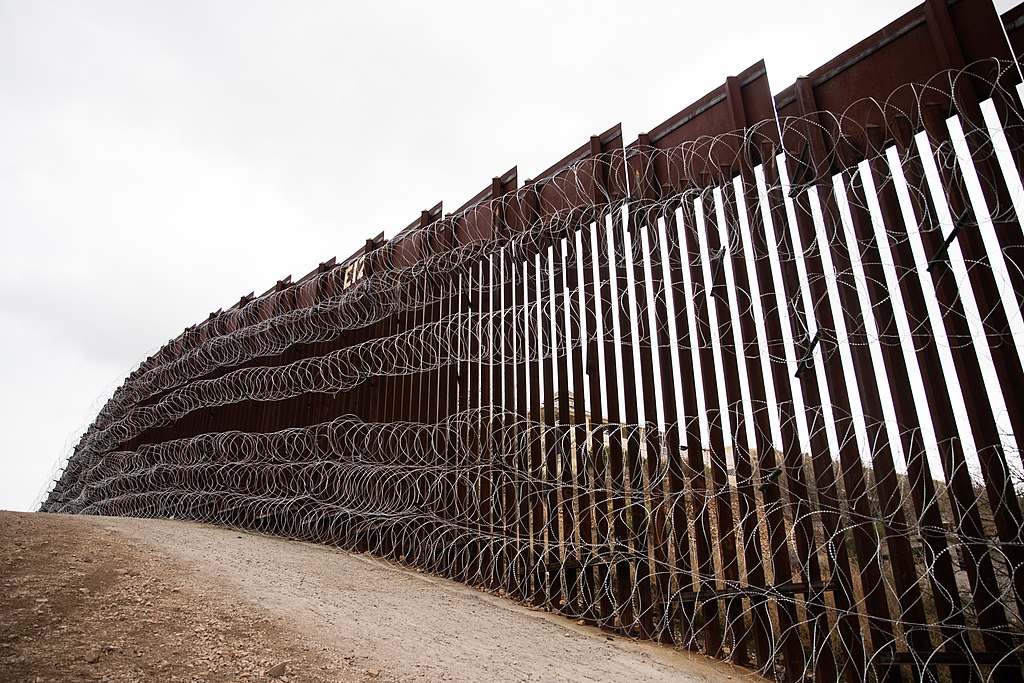Trump to declare Emergency
February 16, 2019 | Expert Insights

President Trump is willing to initiate a state of national emergency to build a wall on the Southern border after the latest house resolution. Democratic and Republican politicians have sharply criticised President Trump's plan to use emergency powers to pay for a border wall with Mexico.
Background
The Mexico–United States barrier, colloquially called the Border Wall, is a series of vertical barriers along the Mexico–United States border aimed at preventing illegal crossings from Mexico into the United States. The barrier is not one contiguous structure, but a discontinuous series of physical obstructions variously classified as "fences" or "walls".
Throughout his 2016 presidential campaign, Donald Trump called for the construction of a much larger and fortified border wall, claiming that if elected, he would "build the wall and make Mexico pay for it." Mexican President Enrique Peña Nieto has said his country would not pay for the wall. On January 25, 2017, the Trump administration signed Executive Order 13767, which formally directed the US government to begin attempts to construct a border wall using existing federal funding. However, actual construction of a wall did not begin at this time, due to the large expense and lack of clarity on how it would be paid for.
Analysis
Mr. Trump is due to declare a national emergency shortly in an attempt to bypass Congress, which has refused to approve $5.7bn (£4.4bn) for the wall. Senior Democrats accused the president of "gross abuse of power". Several Republicans also voiced concern.
Building a border wall was a key pledge in Mr. Trump's election campaign. Declaring a national emergency would give him access to billions of dollars for his project. The president agreed to sign a spending bill that does not include finance for the wall. Disagreement over the issue led to a 35-day government shutdown early this year - the longest in US history.
The spending bill is due to be signed shortly to avert another shutdown. Citing unnamed White House officials, US media outlets reported that the president would sign the emergencies act at the same time.
The National Emergencies Act contains a clause that allows Congress to terminate the emergency status if both houses vote for it - and the president does not veto. With a comfortable majority in the House, Democrats could pass such a resolution to the Senate. The Republicans control the Senate, but a number of Republican senators have been vocal in their unease about the president invoking a national emergency.
The dissenting Republicans include 2012 presidential contender and new senator for Utah Mitt Romney, Florida Senator Marco Rubio, and the senator from Maine Susan Collins, who said the move was of "dubious constitutionality". The resolution would however still require Mr. Trump's signature to pass, allowing him to veto it. A supermajority in both houses of Congress is needed to overturn a presidential veto.
"The president is once again delivering on his promise to build the wall, protect the border, and secure our great country," White House Press Secretary Sarah Sanders said in a statement. The compromise legislation was approved in an 83-16 vote in the Senate on Thursday. The House of Representatives later also backed the measure, by 300 to 128. The package includes $1.3bn in funding for border security, including physical barriers, but it does not allot money towards Mr. Trump's wall.
Speaker of the House, Nancy Pelosi and Senate Democratic leader Chuck Schumer issued a strongly worded joint statement condemning the move. "Declaring a national emergency would be a lawless act, gross abuse of the power of the presidency and a desperate attempt to distract from the fact that President Trump broke his core promise to have Mexico pay for his wall," read the statement.
Assessment
Our assessment is that the present compromise between the lawmakers clearly does not address President Trump’s constant demands for a border wall fund. We believe that the President is willing to initiate a national emergency to avoid a massive public failure of his main campaign promise.








Comments